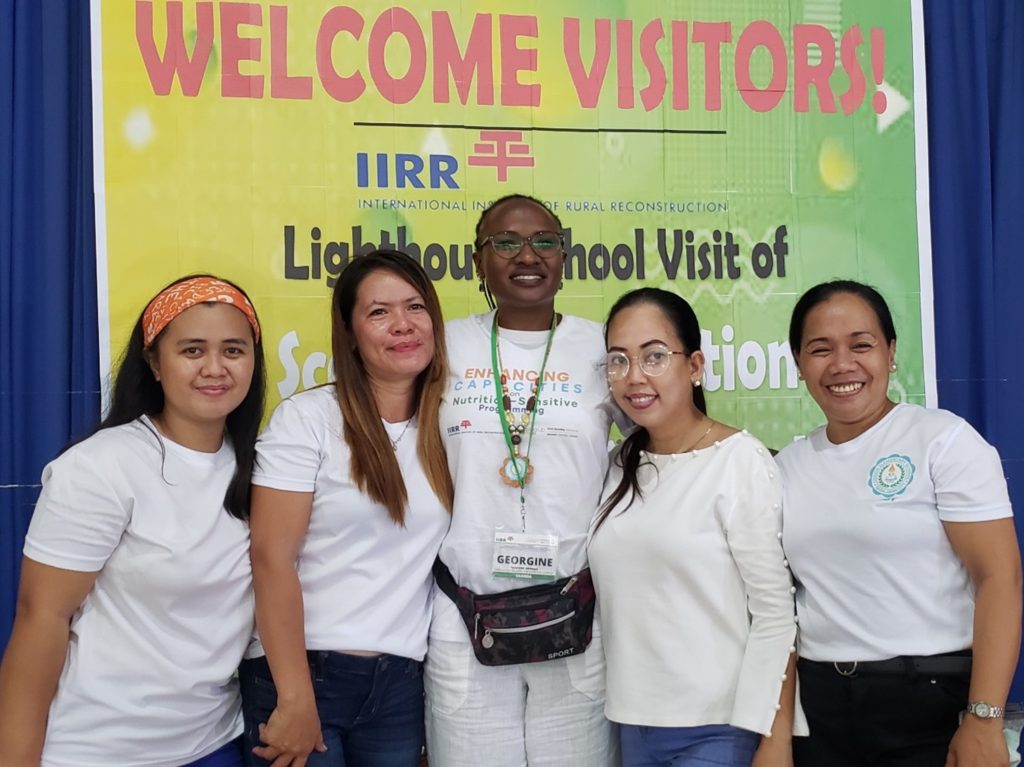A photoblog by Georgine Obwana – CSA Uganda
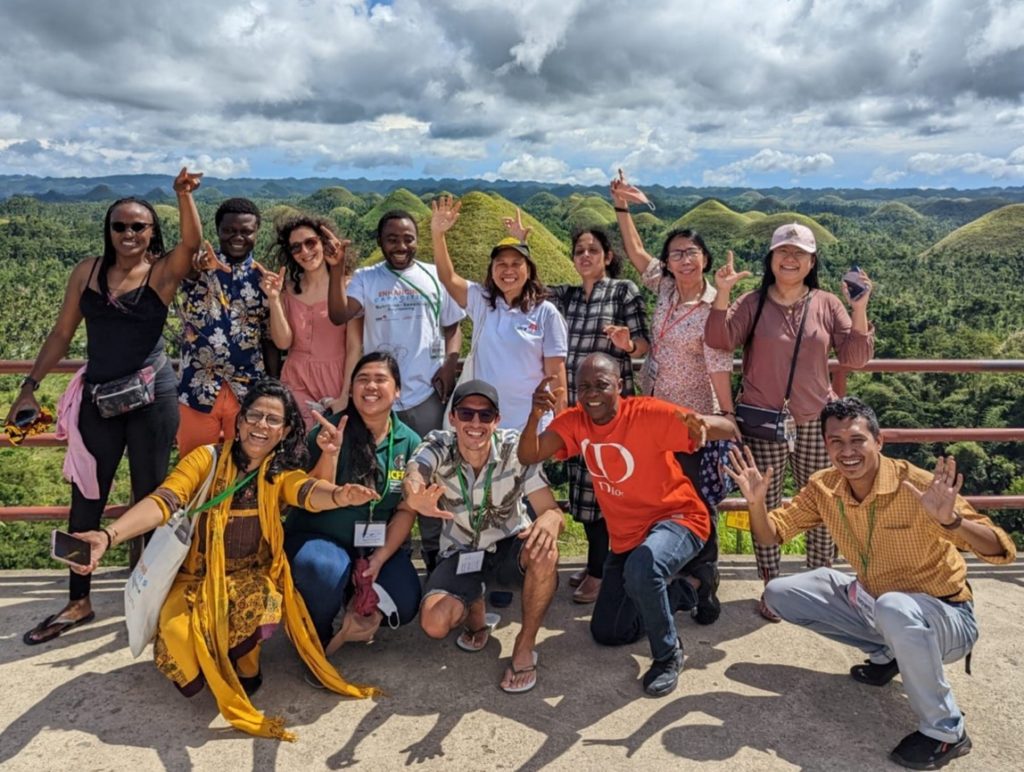
In this ever-changing world, it is necessary to keep updating yourself, your knowledge, and your intellect, to keep up with the continuous growth and development taking place. This is exactly why the one week blended international course on Enhancing Capacities on Nutrition – Sensitive programing (NSP) has played a substantial role for participants from Civil Society Alliances (CSA) under the Scaling Up Nutrition Movement & Civil Society Network (SUN Movement & CSN).
Conducted in the Philippines at the IIRR Yen Center, Silang Cavite, from Nov 21-25, the training drew 10 participants from Africa, Latin America and Asia who underwent a rigorous participatory process with the aim of identifying strategic and effective ways in developing, managing NSP and intervention. As well as describing the participatory approaches in engaging communities to take part in community based NSP and projects.
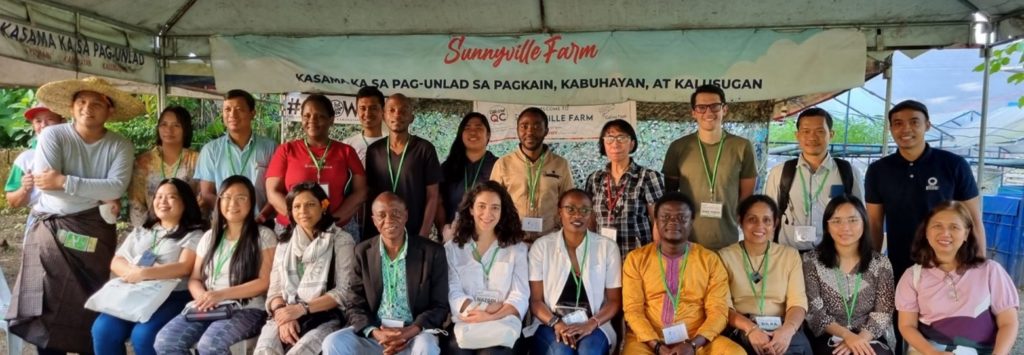
The course, comprised of both virtual webinars (2 days) and in-person sessions (5 days) was designed and implemented by the International Institute of Rural Reconstruction (IIRR) in partnership with SUN CSN. It was specifically intended for members of SUN Civil Society Alliances (SUN CSA) who are professionals in government, NGOs as well as private sector working in agriculture, food security and nutrition programs.
From my own experience as a graduate student I have come to appreciate the fact that learners’ comfort, interests and convenience are some of the few critical factors to consider when delivering a training like this one. Thumbs up to the facilitators and instructors who never fell short on this as participants werefrom varied locations with different views and experiences but advocating for a common cause in fighting malnutrition. And according to me the course objectives hit home.
In my own perspective, participants need to feel like they will gain something from a course, and it’s not just beneficial for their work-life but also their life outside work. Crafting an engaging training experience for participants does not only mean designing relevant content. It also means appealing to participants’ sense of purpose and contributing to their goals. In other words, adopting a learner-centric approach for a training is the best way to deliver it.
I can confidently claim that IIRR wholesomely exploited this approach in delivering this course as they viewed participants as active agents who brought in their own knowledge, experiences and ideas. I can also infer that this impacted how we took on board new information and learning. It differs significantly from a traditional instructor-centered approach.
Like I had earlier implied, half the job is already done if the content creators know exactly what participants are looking for in a training experience. Their goals, outcomes and ambitions all have a large impact on what the course content should be.
In this view, a round of applause suffices for both SUN CSN and IIRR for the manner in which they created the content to meet the needs of participants. It was well thought through and intentional. I learnt, attained and was inspired by various experiences especially from the visits to government institutions like the schools and Local Government Units (LGUs) as well as Civil Society Organizations (CSOs) with initiatives on food security and nutrition.
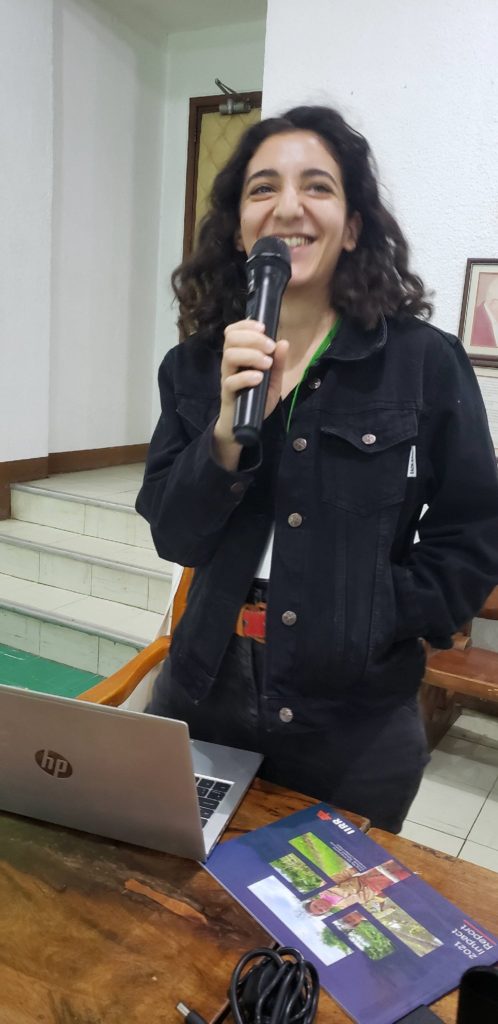
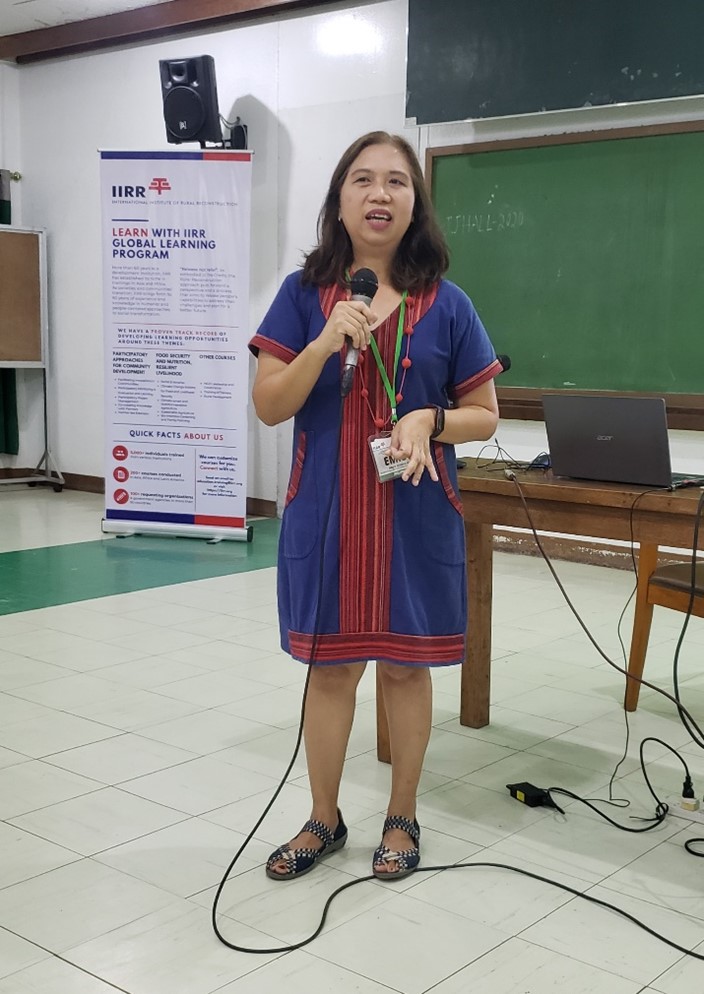
Speaking of field and office visits, for me this was the best part about the training. There would be no other way to ensure participants got the opportunity to witness first hand relevant NSP and learn from these experiences best practices that can be adopted. We visited: Bio-Intensive Garden (BIG) learning Center of IIRR at the Yen Center in Silang, Cavite; Tinabunan Elementary School’s Lighthouse & Governor D.M. Camerino Integrated School in Imus City, Cavite; The National Nutrition Council (NNC) in Taguig City; Office of the Quezon City Mayor, Quezon City; Joy of Urban Community Farming, Sunnyville, Tandang Sora, Quezon City; Integrated School Nutrition Model (ISNM) at Cogon Elementary School, Tagbilaran City, Bohol; Office of the Mayor, Municipality of Balilihan, Bohol; and Office of the Mayor, Municipality of Tubigon, Bohol.
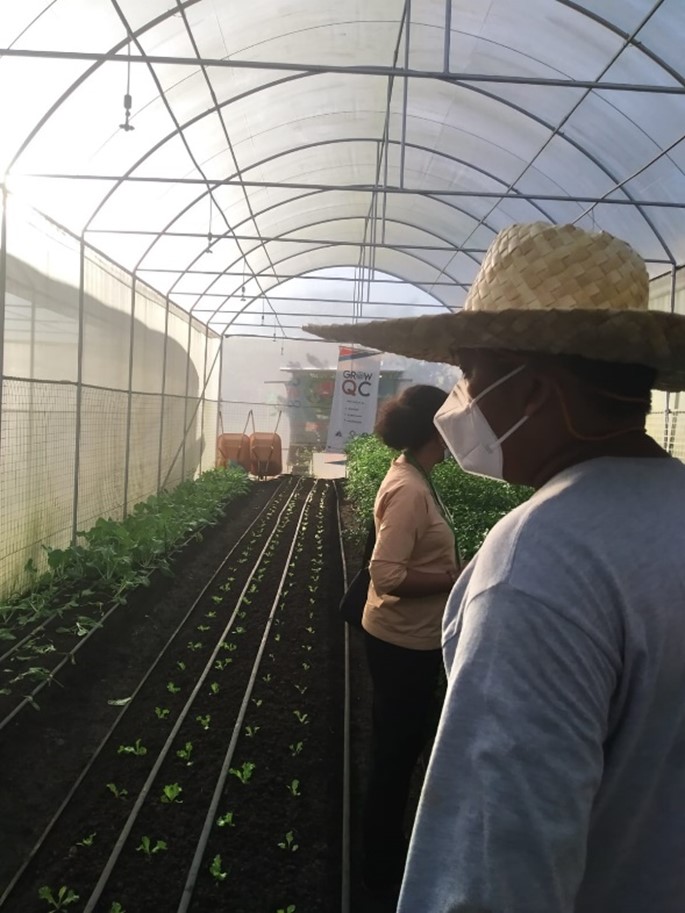
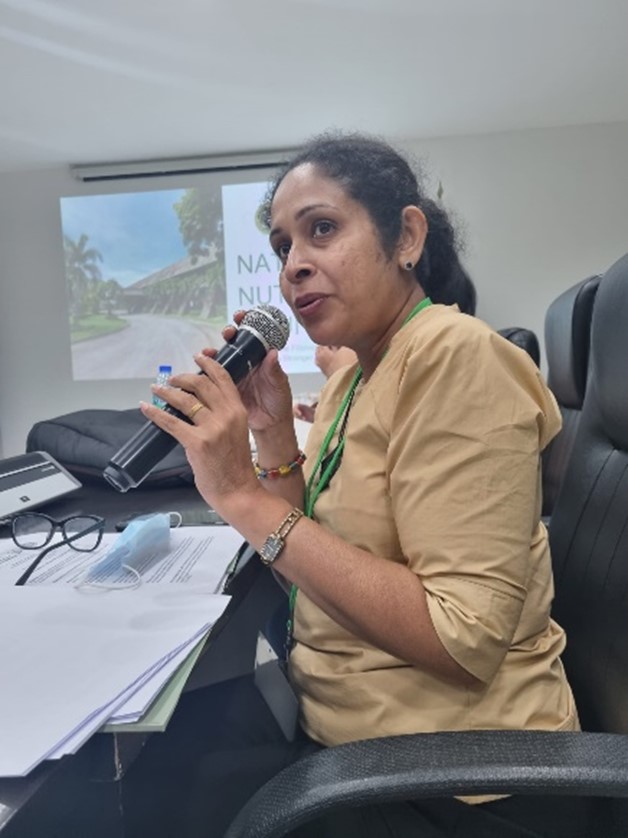
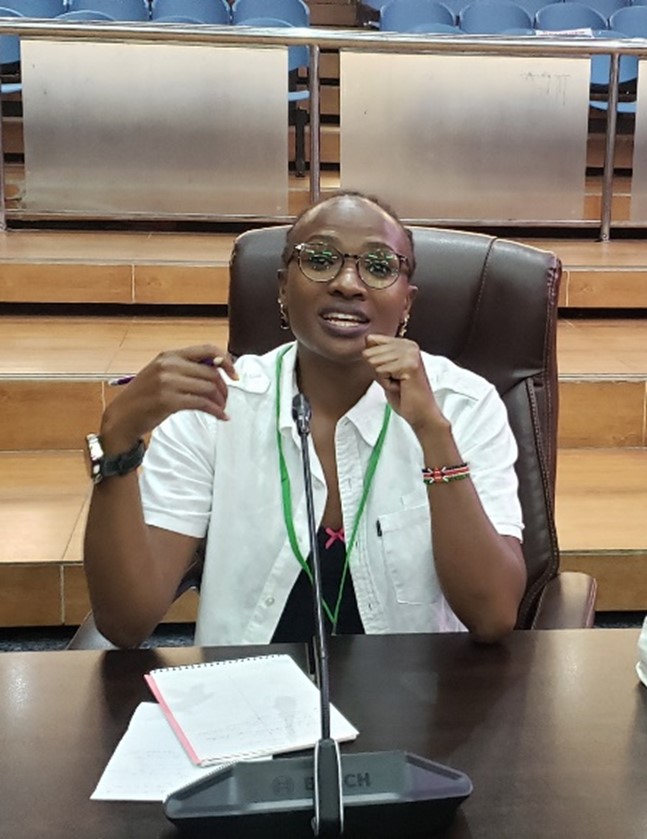
The most interesting thing I learnt was that communities have had quite a number of accomplishments but they are also faced with challenges and issues in the process of implementing Nutrition-sensitive programs or initiatives. Most devised mechanisms of dealing with these challenges which was very encouraging and impressive of their efforts towards promoting good nutrition.
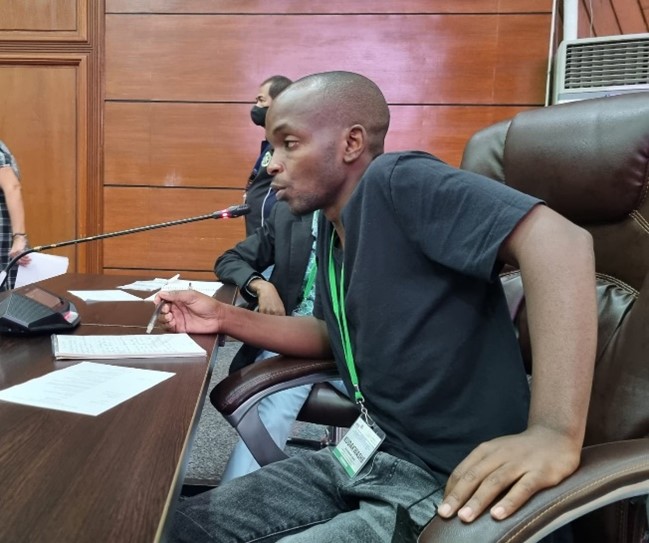
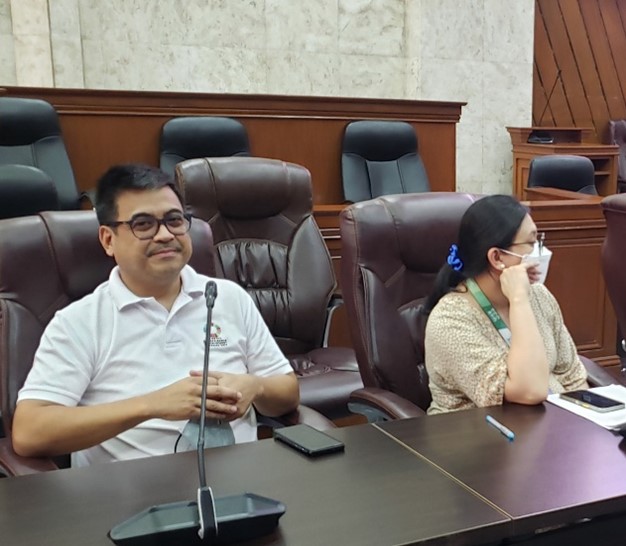
I realized some of the accomplishments included: implementing sustainable strategies and practicing organic farming; Mobilizing communities to engage in income generating activities, Community empowerment to be self-sustaining and self-reliable through community gardens; Good relationship with the local authorities (LGU) and the NNC which enables them to do their community garden activities effectively; Successful community advocacy initiatives in regards to good nutrition.
As for challenges, these included: Failure of some initiatives; Typhoons and other natural calamities; COVID-19 Similarly, social processes have largely been adopted such as the nutrition-sensitive participatory processes which engages local communities to generate ideas andsolutions from within themselves given their circumstances and implement them to positively impact the very community especially learners in schools. Furthermore, the aspect of capacity building support & empowerment strategies have been espoused where local farmers and empowered through promotion from volunteers to paid workers after two (2) years. Not forgetting gender considerations have strongly been promoted with focus on employing women especially those from the most disadvantaged background. Likewise, sustainability mechanisms are employed through recycling plastic bottles, polythene bags and using natural composite manure from leaves in the gardens. This has promoted the use of available resources to produce nutritious foods.
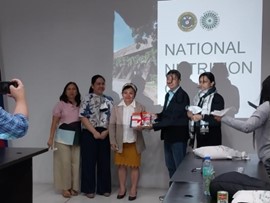
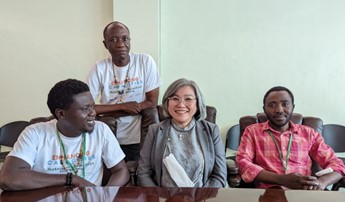
As a nutrition advocate, I learnt a lot of significant lessons and best practices which I will be replicating in my organization, that is, the Civil Society Alliance for Nutrition Uganda (CISANU) and my country Uganda. I appreciated that fact that both urban & community gardening does promote sustainability using the readily available resources; Effective planning and designing of programs in the LGU to include nutrition does benefit the communities; Allotting a budget for nutrition-sensitive programs greatly improves the nutrition situation and also helps empower the socio-economic status of people in communities while also promoting consumption of healthy and diverse foods & vegetables.
Talking best practices, the training oozed with numerous best practices that I couldn’t resist borrowing from. The aspect of multi-stakeholder approach in implementing NSP is practiced to the core. I would say the communities effecting NSP in the Philippines really understood the assignment. We can all agree that nutrition affects everyone regardless and it thus become everybody’s business and concern right from individual level through household up to government level. This is the reason why employing a multi-stakeholder/sectoral method in addressing concerns of nutrition is vital and we cannot escape it.
Another is the promotion and utilization of locally produced indigenous nutritious foods and vegetables; conducting orientation to parents and care givers about children’s feeding practices; and ensuring food safety standards are observed during preparation.
As nutrition advocates we can all attest that malnutrition and hunger continue to afflict children and adults alike in developing countries affecting their growth, development and productivity. Similarly, undernutrition within the critical period of growth, if not addressed causes serious short and long term consequences to a child’s development.
It’s also very evident that access and availability of nutritionally-dense foods which support nutrition is being threatened by environmental changes principally climate change.

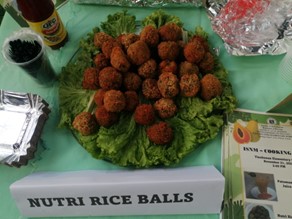
Generally, this is one of the most effective and engaging training experience I have had because it was very timely, relatable, offered real world experiences, and resonated with my work at CISANU. I was motivated to take part in this training first, I wanted to improve my level of awareness on nutrition sensitive programs and initiatives with a global perspective while sharing my experiences and practices as well. Secondly, this being the first of its kind organized by SUN SCN and SUN Movement I was looking forward to meeting and networking with other CSA members from Ecuador, Sierra Leon, Rwanda, Zimbabwe, Kenya, Myanmar, Bangladesh, Sri Lanka as well as Philippines and learn from them about NSP. Finally, I wanted to enhance my coordination and leadership capabilities as I coordinate over 30 organizations under CISANU, thus meeting and learning from IIRR and SUN CSN team would bring this objective to fruition.
I immeasurably benefited from the information and skill-building resources shared by members of the CSN as well as the visits to the NSP which will help me build on my nutrition advocacy work more effectively.
